Part 1. How to find a reliable freight forwarder?
Part 2. How many modes of transportation are there from China to Singapore?
Part 3. How to save money?
A freight forwarder, forwarding agent or cargo agent is an indispensable member (or company) of the international trade and transport community that organizes shipments for individuals or corporations. Their main activity is based on coordinating and shipping goods from one place to another via a single or multiple carriers (air, sea, rail or highway), including tracking inland transportation, preparation of shipping and export documents, warehousing, booking cargo space, negotiating freight charges, freight consolidation, cargo insurance, and filing of insurance claims.
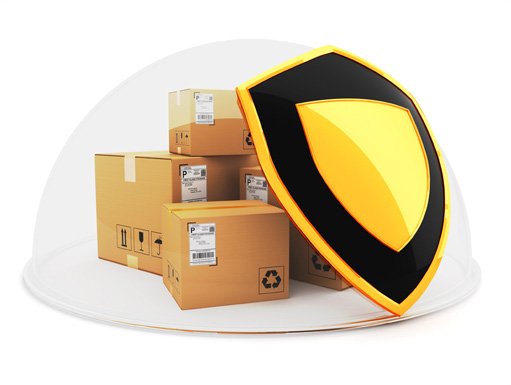
If you don’t have time and energy, experience or you just want to avoid paperwork or cross-see transportation process problems, a freight forwarder is the person you need. Another big advantage is the fact that a freight forwarder can help you save money.
In other words, if you want to save time, energy and money while making an international delivery from China to Singapore by air, sea or land, consider using a freight forwarding agent. He will make sure your goods will arrive on time and at the final destination in the right conditions.
Also, if this is your first shipment or you are an occasional carrier who knows little about international transport, we recommend you to find a freight forwarder who will help you along the shipping process, and you will be able to save more time and money than if you ship by yourself.
Regardless of the mode of transportation (air, sea or land) from China to Singapore, it is always best to choose a freight forwarder from China. A Chinese freight forwarder is an ideal choice for overseas transporters because it has the advantages of language and geography, and if you ship from China you will also need a Chinese warehouse for storage and preparation. In general, local freight forwarders will probably need to contact another agent in China to handle the picking, preparation, storage, and customs clearance, which will lead you to higher costs.
Time, money and the success of your shipment from China to Singapore is what matters, and finding a reliable freight forwarder for your shipping can be a hard task sometimes. You can ask the freight forwarder a series of questions to assess whether he is qualified for your transportation or not such as:

1) Does the freight forwarder have a business license from the Chinese government? – Having a business license makes everything legal and transparent for you.
2) Does the freight forwarder have an official website, and has a good ranking on Google? – On their website, you can find the necessary information about their services and costs. Not to mention that in these modern days, Google reviews are a must-have for any company that respects itself and cares for its customers.
3) Does the company have a good insurance plan? – Having a good insurance plan is very important because it will compensate for your merchandise if any damage occurs in shipment or warehousing.
4) Do they have a complete cargo tracking system to update your cargo progress in real-time? – Finding a cargo shipping partner that offers cargo tracking is crucial because you can see in real-time where your shipping is and how much it takes to arrive at the final destination.
5) You can also ask them to provide the most recent shipment record or bill of lading – A bill of lading contains all relevant details about the type, amount, condition, and destination of the goods.
6) During the consultation, were the responses prompt, with professional advice and explanations? – If you are convinced by their services, but you still have some doubts about the process, is best to try the freight forwarder with a shipment of small goods. This way, if anything goes wrong, you won’t lose a big amount of money.
Before talking about the modes of transportation, we want to bring to your attention the import rules, regulations, and customs in Singapore, and also which are restricted and prohibited goods.
Singapore has employed strict rules to safeguard consumers, which includes monitoring the imports into the country. All goods imported into Singapore are ruled by the Customs Act, the Goods and Services Tax (GST) Act and the Regulation of Imports and Exports Act.
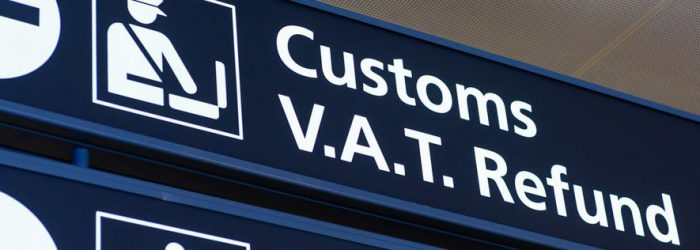
For importing trade samples (that is below $295) you don’t have to pay duty and/or GST, and no permit is required for their import.
Medical devices, medicinal products, prescription and over-the-counter pharmaceuticals that are imported or sold in Singapore are required to be licensed by the Health Sciences Authority.
You don’t have to pay duty and/or GST for the goods that are temporarily imported under the Temporary Import Scheme for a period of six months, and are covered by a Customs Inward Permit or a Carnet. The temporary imported goods are goods with various purposes (for repairs, testing and stage performances, auctions, displays, and so on). However, a banker’s guarantee is required under the Temporary Import Scheme. Goods temporarily imported must be re-exported within six months using a Customs Outward permit; otherwise, you will have to pay GST.
Here is the list of goods that are prohibited for import, or are subject to authorization before they may be imported: chewing gum (excluding Health Sciences Authority approved oral dental and medicinal chewing gum), pistol or revolver-shaped cigarette lighters, fire crackers, rhinoceros horn (in any form), endangered species of wildlife and products derived from the body of such animals, telecommunication equipment (scanning receivers, military communication equipment, telephone voice changing equipment, radio-communication equipment operating in frequency bands 880-915 MHz, 925-960 MHz, 1900-1980 MHz and 2110-2170 MHz except cellular mobile phones or such other equipment approved by Info-communications Media Development Authority of Singapore, radio-communication jamming devices operating in any frequency band, obscene articles, publications and video tapes or discs, seditious and treasonable materials), chewing tobacco, imitation tobacco products (like electronic cigarettes) and components of imitation tobacco products, Shisha, smokeless cigars, smokeless cigarillos or smokeless cigarettes, dissolvable tobacco or nicotine, any product containing nicotine or tobacco, nasal snuff, oral snuff, gutkha, khaini and zarda, controlled drugs listed under 4th Schedule of Misuse of Drugs Regulation.
Most commonly imported cargo from China to Singapore are electronic equipment, machinery (usually for construction), mineral fuels as well as oil, copper, medical and technical equipment, iron and steel for constructions, iron or steel products, live trees and plants, organic chemicals for various purposes, and plastics.
Depending on your load volume it is best to evaluate the mode of transportation when you are planning the shipment process because each option of transport has advantages and disadvantages. You can significantly optimize your cargo flow, save money and time by choosing the right mode of transportation.
After you have selected your cargo agent, the collaboration between the two parts will begin. An experienced China-Singapore freight expert will have excellent communication skills understanding all your requirements, including time, budget, and mode of transportation.
It is known the fact that 95% of product samples and a small amount of high-value goods are sent by courier.
If you want your goods to arrive fast at your destination, express delivery is a relatively easy way to transport your goods, and the delivery time from China to Singapore is around 3 working days.
With this type of delivery, you don’t have to worry about customs clearance or taxes, but because express shipping means urgent and faster delivery, the price and rates are higher than other forms of transportation, and it can also increase during the holidays, but it can drop dramatically in the off-season.
To save money, cargo agents or freight forwarders are the best solution because they can find you an express company that gives you a reasonable price, and they can also get a discount price that you won’t find on their official website.
If your load is over 500 kilograms or it occupies more than two cubic meters, have to plan your shipping in advance because it is a complicated process that takes a lot of time.
The sea shipping time from China to Singapore is estimated at around 4 to 10 working days.
In China, there are several ports such as Shanghai port, Ningbo port, Shenzhen port, Tianjin port, Qingdao port, Xiamen port, and Hong Kong port, from which your shipping can leave to Singapore. If your freight forwarder is located in these cities, you will have the advantage that he will be more familiar with the loading and unloading rules of each port, making it easier to handle your goods, saving you time.
Singapore has two main commercial port terminal operators PSA Corporation Limited, which manages the major share of container handling in Singapore, and Jurong Port, which is Singapore’s main bulk and conventional cargo terminal operator.
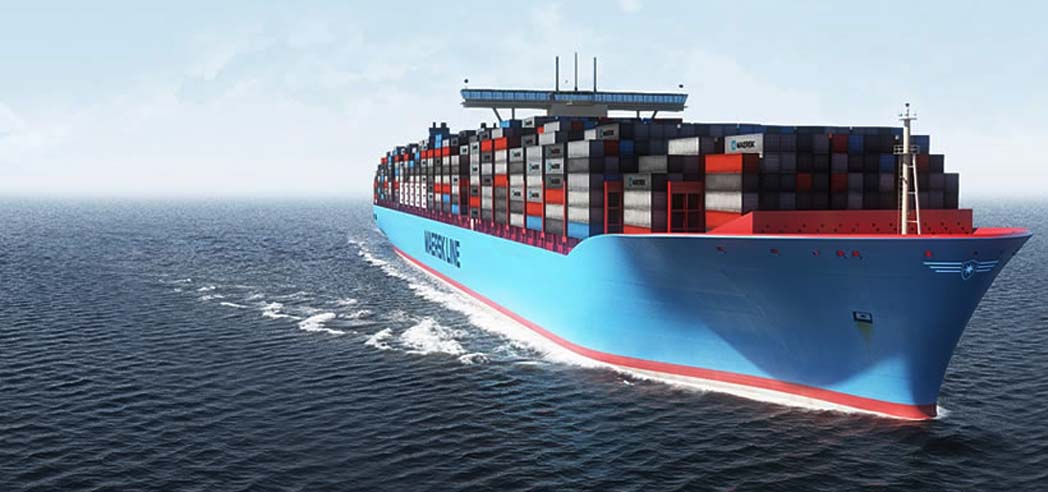
Sea freight shipping is the best option for bulk goods transportation, sometimes being the only option. When importing from China, you can choose Full Container Load (FCL) or Less than Container Load (LCL) if your overall cargo volume doesn’t meet one full container requirement.
There are three types of containers 20 ft., 40 ft. and a 40 ft. high cube container. The 20 ft. containers are designed to carry more weight such as minerals, metals, machinery, sugar, paper, cement, etc., while the 40 ft. containers are designed to carry voluminous cargo rather than heavy cargo, for example, furniture, steel pipes, paper scrap, cotton, tobacco, etc.
You should use LCL if you don’t have enough goods to fill a 20′ or a 40′ container (FCL). This enables importers to ship smaller amounts of cargo, which doesn’t have the right volume to make Full Container Load a viable option. This means your cargo is combined with other shipping cargos for the same destination. When combining several shipments in one container, your freight forwarder needs to do more work. LCL freight is calculated in cubic meters (CBM) and charged based on the volume.
FCL refers to when the quantity of your goods is large enough that they can be put in at least one container. In this case, the freight is calculated on an FCL basis. FCL shipment will be loaded and sealed at origin by your supplier, then shipped to your final destination.
Airfreight can bring your cargo from a factory floor in China to your destination in a matter of days.
Although 90% of goods are shipped by sea, when importers and exporters need to move high-value goods to Singapore quickly and reliably such as seasonal goods, clothing, electronics, and/or products that cannot be near water, they use air freight. Air transport shipping time from China to Singapore is around 1 to 2 business days, including express delivery.
There are two classes of Airfreight, economy, and express or fast air transportation.
1) Economic air freight: This service applies for general cargo (no dangerous goods, oversized or temperature-controlled goods). For this category, the price is relatively low compared with the express air freight.
2) Fast air transportation: With this service, you can transport cargo of all shapes, sizes, and types, including dangerous and oversized goods in a short time.
Both of these classes of airfreight can arrive in 1-2 working days at your final destination.
There are two methods to calculate the air freight price. The first method is cost per kilogram multiplied with the cargo weight, and for the second one, for low-density cargo (low weight and high volume) you will be charged based on the volume it occupies.
Another important aspect is understanding the terms FOB, EXW, CIF, and DAP. Understanding these terms will help you save money because, in the same transport model, transport cost is a crucial factor.
Many websites (Alibaba, Taobao, Amazon, etc.) use the quotations FOB, EXW, CIF, and DAP. In general, these quotations include information about where your cargo is being shipped to and from, the transport mode and equipment being used, shipment details such as dimensions, weight and a description of the goods.
FOB means free on board or freight on board and is an international shipping agreement used in the transportation of goods between a buyer and a seller. FOB is the primary mode of Alibaba’s quotation, which means that your Chinese supplier will be responsible for the transportation from the Chinese factory to the Chinese loading and unloading port. For example, if you see FOB Ningbo – Ningbo is a city and a port in China, and it means that this is the port that the supplier will ship your order to, which is covered by the FOB price, and from here, you are responsible for the freight. The freight is divided into two aspects – the first one is from China airport/port to the airport/port in Singapore, and the second one is from the Singapore airport/port to your doorstep.
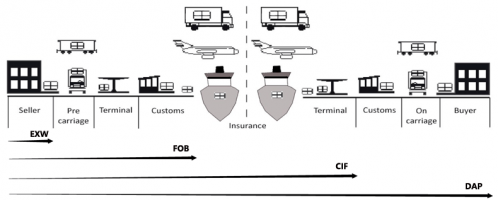
EXW stands for Ex Works. If you see this quotation on the website you are buying from, it means that the seller is making the goods available at their premises, or another named place. In other words, EXW means that your freight has been increased one step, and you will be responsible for the transportation from the factory in China to the loading port in China. This is an aspect your Chinese freight forwarder will help you manage. Your shipping costs will divide into three categories – From China factory to China airport/port – from China airport/port to Singapore airport/port – from Singapore airport/port to your doorstep. Over this, other transportation costs will be added such as Chinese export costs and customs clearance costs.
Finding a reliable freight forwarder is important because he will let you know where every cost is going, with no hidden expenses.
CIF stands for cost, insurance, and freight, and it means that the supplier is responsible for all transportation costs from the factory in China to the airport/port in Singapore, including insurance.
In other words, CIF is an expense paid by the seller to cover the costs, insurance, and freight, if a package or item is lost or damaged while it is in transit to an export port. The seller must cover other expenses such as additional customs, export paperwork, inspections or rerouting, but once the freight is loaded, you (the buyer) become responsible for all other costs, including the expenses from the German airport or port to your doorstep. With CIF the supplier adds an extra charge to compensate for their efforts, and it becomes more expensive than FOB.
It will save you time and money if you find a freight forwarder, because usually, the suppliers in China will also find a freight forwarder to deal with the whole process, and they cannot professionally update the status of your goods promptly.
DAP stands for delivery at place or destination delivery. If you see this quote on the website you are buying from, it means that the seller will handle all the charges and the delivery to the buyer facilities, but the import taxes will be paid by the buyer at the destination.
Once the goods are ready for shipment, the packing is done by the seller at his own cost, then the goods are moved to customs location opted by the seller at exporting country at his expenses under DAP terms. All the necessary legal formalities in the exporting country are completed by the seller at his costs and risks; also the insurance up to the destination (Singapore) is arranged by the seller. If it’s not mentioned in the contract, the unloading cost at the final destination has to be borne by you (the buyer).
In other words, the seller is responsible for all the expenses and risks to deliver the goods up to the destination mentioned in the contract. From the destination mentioned in the contract, it becomes the buyer’s responsibility for the goods to reach his premises at his own expense.
But even if the seller is responsible for all the shipping steps, he can’t do detail work such as warehousing, labels, and goods inspection, so it is best to find a reliable freight forwarder, to help you with the detail work.
By choosing FOB or EXW you will save money and time, your goods will be in professional hands, with the lowest price, and the fastest time to reach your destination.
All goods imported into Singapore are ruled by the Customs Act, the Goods and Services Tax (GST) Act and the Regulation of Imports and Exports Act.
Intoxicating liquors, tobacco products, motor vehicles, and petroleum products are goods that are subject both to GST and duties, and all the other goods that are not subject to duties are subject to GST only.
GST applies for every imported product, whether the importer is GST-registered or not, but there are some exceptions such as precious metals investments, eligible products for import relief, the importer is eligible for a GST scheme, and the products are imported in a Free Trade Zone.
GST in Singapore equals to 7% of the CIF value of your shipment and is charged by Singapore Custom, but this is scheduled to be increased to 9% sometime between 2021 and 2025.

Tax calculation:
• For dutiable goods – the taxable value for GST (calculated based on the CIF value) + all duties and other charges.
• For non-dutiable goods – GST (based on the CIF value) + any commission and other incidental charges.
• Become Familiar with Size and Weight Calculation Rules
In general, paying special attention to the charges will save you money, especially if you chose to transport your goods via. This how prices are calculated for express delivery and air freight – the weight is calculated in kilograms (kg), and the volume is calculated in cubic meters (CBM).
A) When the volume of the goods is larger than the actual weight is called dimensional weight – this is an estimated weight calculated by multiplying the length of the package with the width and height divided by a dimensional factor, also called a DIM divisor. Dimensional factors are numbers set by the major freight carriers, and represent cubic inches per pound. The dimensional weight is the weight of the package at the minimum density accepted by the carrier.
Dimensional weight = length × width × height/dimensional factor
B) Calculating the actual weight – If the actual weight of the goods in kilograms is more significant than its dimensional weight, it will be calculated like this:
Actual weight of the package x cost per kilogram (this price varies from company to company).
Freight carriers like DHL, FedEx, or UPS calculate shipping charges based on whichever number is greater (actual weight or dimensional weight) – if you have a package that has the actual weight less than 31 kilograms (let’s say 29 kg), the freight carrier will charge for the dimensional weight of 31 kilograms since it is the greater number. For them, whichever number is higher becomes your billable weight. Therefore, in some cases, to save money it is necessary to compress the package to reduce the measurement volume. International transport and logistics companies, in general, are based on the maximum value they can charge, which will lead you overall to higher costs.
Finding an experienced and reliable freight forwarder to help you in this process, will save you money and time.
In general, planning will help you avoid trouble. The delivery time of your goods is the crucial factor that decides the mode of transportation, and in international transportation, you always have to plan your shipment in advance.
Holidays in China can have a great influence on your delivery time. Planning will help you save money and you will also have time to face unplanned delays such as congestion, blockages, supplier issues, and documentation mistakes. Knowing the holidays’ schedule in China and important shipping deadlines and guidelines will save you time and money because in those peak periods the shipping prices are usually higher and the factories are closed.
The peak seasons for shipping from China to Singapore are: Chinese New Year – in this period factories and facilities shut down, causing price spikes and delays; Golden Week – this week-long festival exacerbates holiday season price spikes and delays; Dragon Boat Festival – for this holiday businesses typically close for three days; Holiday Shopping Season – prices rise steadily over months as businesses prepare for holiday shopping (October-December for air freight, July-October for sea freight).
Freight forwarders can often work within their contacts in your advantage to help you achieve your goal faster and cheaper. They can offer the option of multimodal transportation combining air freight and sea freight with other forms of ground transportation (trucks, trains, or some other mean of transport) for the delivery to be made in time and at a reasonable price. The multimodal transportation will deliver the goods in the correct time frame and keep your shipment on budget.
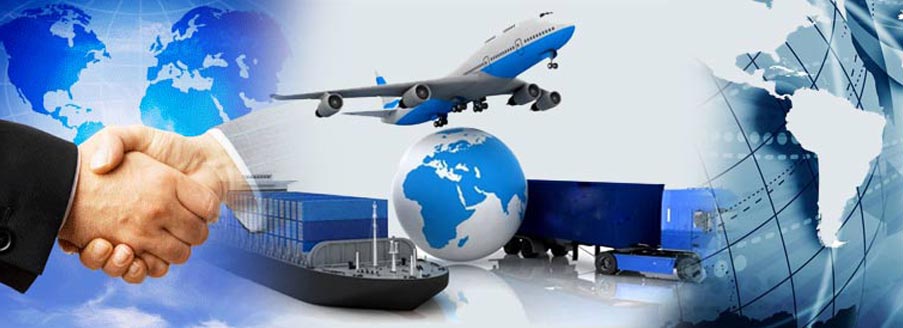
Multimodal transportation also known as combined transportation is a hybrid transportation solution for your goods with at least two different modes of transport, under a single contract. In this type of transportation, the carrier is responsible for the entire transport, and he does not have to possess all the means of transport. He is also known as a multimodal transport operator. This mode of transportation might induce certain costs for transshipments and handling, but it also comes with many advantages such as centralization of responsibility in one transport operator, economies of scale in transport negotiations, use of international experience in transportation, in the field of bureaucracy and commerce, better use of available infrastructure and more efficient means of transport, focused on cost reduction, and reduction of indirect costs.
Sometimes air freight is too expensive, and sea freight cannot deliver your goods in time, and cooperating with your freight forwarder to provide you the best shipping method for your goods is the best choice.
Sometimes transporting goods from China can be a complicated process, because it involves many steps such as warehousing, document preparation, customs issues, cargo insurance, and so on, regardless of the mode of transportation you chose.
The international trade and the logistics industry are developing and growing rapidly, and finding a reliable and experienced freight forwarder might be the key to solve the problem of national transport because these agents can save you money, time and energy.
We always place our customers first offer them the best shipping possible from China to Singapore through our experienced freight forwarders because their gain is our gain. We have experience, airline relations, customs reputation, competitive prices, and timely delivery. Our success is based on integrity and responsibility.
Our company is a long-established, experienced Chinese cargo agency specializing in shipping goods from China to different corners of the world.
If you‘re ready to start your shipping process click here for more information and offers.
